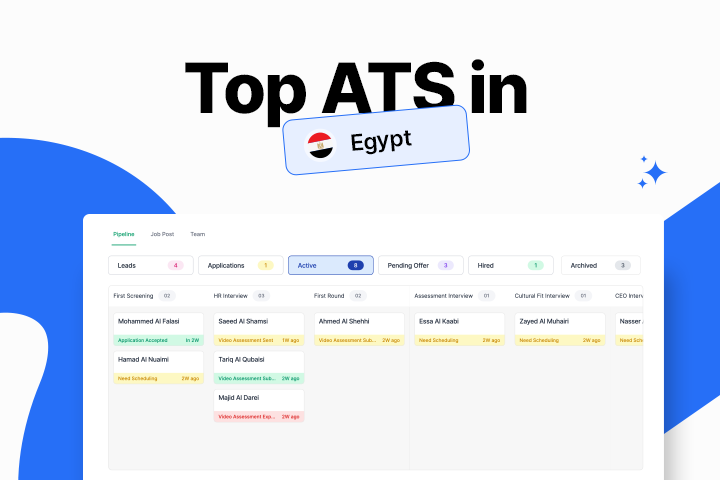Offering a strong onboarding experience in Bahrain is more than a nice-to-have, it’s a competitive differentiator. With a highly diverse workforce and strict regulatory requirements, companies that join compliance with culture and technology win. Below is a step-by-step guide to hiring and onboarding both expatriate and Bahraini nationals in 2026.
Explore more: Top Hiring Trends in Bahrian
Why Employee Onboarding Matters in Bahrain
Structured onboarding programs are a powerful driver of long-term success. Research shows companies with strong onboarding processes improve new-hire retention by 82% and increase new-hire productivity by over 70%. Another study indicates that 69% of employees who have an exceptional onboarding experience are likely to stay with their company for at least three years. In Bahrain’s private sector, where talent competition is strong and regulatory expectations are high, a robust onboarding framework supports compliance, engagement, and operational efficiency.
Explore more: How to Hire Employees in Bahrain
Understanding Bahrain’s Onboarding Laws and Regulations
Bahrain’s key regulations for onboarding include:
- The Labour Law (Decree No. 36 of 2012), which governs employment contracts and worker rights.
- The Labour Market Regulatory Authority (LMRA), which controls expatriate work permits, registration via its Expatriate Management System (EMS) and ensures quotas are met.
- The national “Bahrainisation” policy, which requires private sector companies to meet employment quotas for Bahraini nationals. Your hiring and onboarding process must align with this.
Key compliance steps include: issuing legally valid contracts (often bilingual: Arabic + English), obtaining work permits for expatriates before employment begins, registering employees with the Social Insurance Organization (SIO), and ensuring health insurance and residence permits are in place.
Explore more: Top Recruitment Agencies in Bahrain
Step-by-Step: Employee Onboarding Process in Bahrain (2026)
1. Pre-Boarding Activities
- Issue the job offer & contract:
Ensure your contract meets Labour Law requirements (for example it must be in Arabic or have an Arabic translation).
- Obtain work permit via LMRA:
For expatriates, apply through LMRA’s EMS with relevant docs (passport copies, educational certificates, signed contract).
- Entry visa & medical examination:
After permit approval, process the visa, then ensure the new hire undergoes required medical checks and uploads results.
- Register residence/CPR card:
For expatriates, assist with application for the Central Population Registry (CPR) card, which is required for bank accounts, health insurance and official transactions.
Suggested: What are the Best Employee Onboarding Practices?
2. First Day Orientation
- Company overview & culture briefing:
Introduce mission, values, organisational structure and work culture (including local norms such as prayer rooms, Ramadan adjustments, workplace etiquette).
- Policies & procedures:
Cover working hours, leave entitlements, code of conduct, health & safety protocols and confidentiality rules.
- Facility tour & team introductions:
Help new hire locate key areas (workstation, meeting rooms, restrooms, prayer rooms) and introduce them to their team and manager.
- Complete documentation:
Collect original documents or verified copies, register the employee with SIO, and ensure all HR paperwork is finalised.
Suggested: Top Recruitment Platforms in Bahrain
3. Training Phase
- Role-specific training:
Provide job-specific training (software tools, task procedures, equipment use).
- Compliance & ethics training:
Include Labour Law overview, anti-discrimination training and health & safety briefings.
- Cultural sensitivity training:
For expatriates, this could include an introduction to Bahraini work culture, social norms, communication styles and religious observances.
Also Check: Bahrain Cost of Recruitment Calculator
4. Post-Onboarding / Integration
- Mentorship or buddy programme:
Pair new employees (especially expatriates) with a mentor for support, guidance and smoother integration.
- Regular check-ins:
Schedule progress meetings at 30, 60 and 90 days to gather feedback, monitor adaptation and identify issues early.
- Feedback and process improvement:
Use gathered feedback to refine your onboarding process, making it more efficient and tailored to your organisation.
Explore more: Hire the Best Candidate in Bahrain
Key Challenges in Onboarding Expats vs. Nationals
- Work permit delays:
Expatriate hires often face multi-week processing for LMRA approvals and visa stamping.
- Quota compliance:
Achieving Bahrainisation targets means you must balance international hires with local talent and the right onboarding mix.
- Cultural integration:
A workforce comprising Bahraini nationals and expatriates demands onboarding that addresses both local norms and global diversity.
Read more: What are the best Employee Onboarding Practices?
Final Thoughts
A thoughtful, structured onboarding programme in Bahrain does more than tick regulatory boxes, it drives engagement, supports retention and ensures that new employees become productive and connected to your organisation fast. With the regulatory landscape evolving and digital onboarding solutions becoming more common, recruiters and HR teams should act proactively. By combining compliance, technology, cultural finesse and clear communication, you’ll create onboarding that meets Bahrain’s unique workplace environment and positions your business for success in 2026 and beyond.
Suggested: Top Applicant Tracking System (ATS) in Bahrain
{{tool-bah="/sandbox/home-v3"}}




